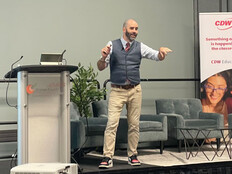Toolkit Helps Students Become Responsible Digital Citizens
With the presidential election less than a month away, there’s a lot of talk in K–12 classrooms about the importance of citizenship.
But, as any teacher with a computer knows, teaching students to be good citizens and good neighbors requires more than the requisite history lessons, volunteer projects, and civic education.
In the digital age, being a good citizen also means knowing how to work and interact with people online. And if recent reports of cyberbullying and online scams are any indication, schools have a very, very long way to go.
No one is blaming teachers for this — yet. But as technology continues to play an increasingly central role in the nation’s schools and classrooms, there is a growing expectation that educators, along with parents, should assume some responsibility for student behavior, good and bad, on the Internet.
To help teachers begin thinking about the importance of online citizenship and how to integrate such lessons into their classrooms, organizers for the educatorcentric social network Edmodo, which boasts more than 10 million registered users, and Common Sense Media, a nonprofit dedicated to protecting student privacy online, have released a Digital Citizenship Starter Kit.
The downloadable kit includes five custom lessons each for each level — elementary, middle and high school — and a written pledge that students can sign. Its authors say the resource will help educators start classroom conversations about important topics, such as Internet safety, cyberbullying, community relationships, digital identity and information literacy.
Educators who download the kit and register for Edmodo (free) also have access to the social network’s Digital Citizenship community, which features comments, ideas and best practices from fellow teachers.
The project reportedly evolved from a free curriculum created by Common Sense Media to teach digital citizenship in K–12 classrooms.








